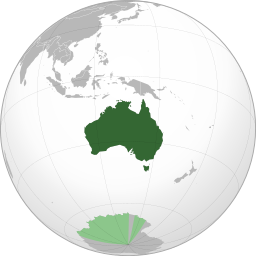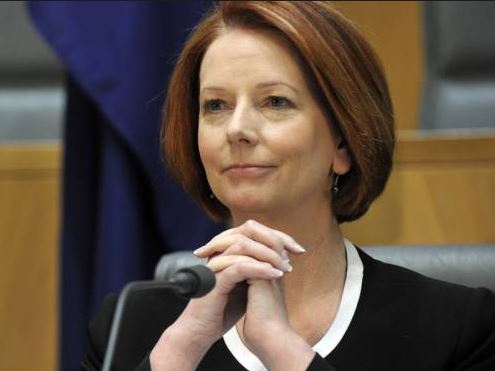[vc_row][vc_column width=”1/2″][vc_column_text]
Australia
Australia is a highly developed market economy and a member of the OECD and G20. It has the 14th largest economy in terms of nominal GDP (2019), the 20th in GDP per capita in PPP terms (2018), and the second in median wealth per adult (2019). Australia is a signatory to the Trans-Pacific Partnership 11 free trade agreement and in November 2019 agreed to join the Regional Comprehensive Economic Partnership (RCEP) agreement involving China, Japan, South, Korea, New Zealand and the ten ASEAN countries. Mining was the biggest individual contributor to GDP (10.2 percent) in 2018-19, followed by Financial and Insurance Services (9.3 percent), and Construction (8 percent). Overall, services contribute around 70 percent to GDP. Exports are dominated by minerals with a 60 percent share. The top five exports in 2017 were iron ore (14.5 percent), coal (14.2 percent), tourism (12.7 percent), LNG (12 percent), and gold (5.2 percent). China is Australia's top export partner. Australia has the eighth-highest total estimated value of natural resources, valued at US$19.9 trillion in 2016. This includes the largest share of global iron ore reserves (29 percent) and uranium reserves (29 percent), and the sixth largest share of black coal reserves (6 percent). The financial sector is highly sophisticated with one of the largest pools of contestable funds under management globally, valued at about US$850 billion. This is mostly due to Australia's compulsory retirement savings scheme called "superannuation" which is largely invested in equities. The Australian Securities Exchange in Sydney is the 16th-largest stock exchange in the world in terms of domestic market capitalisation and has the largest interest rate derivatives market in Asia. The Australian economy benefitted from deregulation and trade liberalisation in the 1980s and the resources boom in the 2000s. It has not experienced a recession since July 1991 and holds the world record for uninterrupted expansion. It has a strong financial system and along with Canada it weathered the 2008 global financial crisis relatively unscathed. Growth has slowed in the last two years while the housing market has had a minor correction.
[/vc_column_text][vc_column_text] Its population in 2018 was 24,772,247 [1]
Its population in 2018 was 24,772,247 [1]
 In 2015, 9.18% of its total energy
In 2015, 9.18% of its total energy
consumption was renewable [2]
 In 2021, its GDP grew by 1.48% [2]
In 2021, its GDP grew by 1.48% [2]
 In 2021 it had a positive Current
In 2021 it had a positive Current
Account Balance of US$bn 57.76 [3]
 Its unemployment rate in 2021 was 5.10% [3]
Its unemployment rate in 2021 was 5.10% [3]
 Its Expenditure on R&D (as a percentage of
Its Expenditure on R&D (as a percentage of
GDP) in 2019 was 1.83% [2]
 A Big Mac will set you back the
A Big Mac will set you back the
local equivalent of US$4.35 [4]
What free trade areas or economic unions is it a member of?
Member of the Comprehensive and Progressive Agreement for Trans-Pacific Partnership (CPTPP) since 30/12/2018
Other members:
Brunei Darussalam, Canada, Chile, Japan, Malaysia, Mexico, New Zealand, Peru, Singapore, Vietnam
What trade deals are there between Comprehensive and Progressive Agreement for Trans-Pacific Partnership and other countries and economic unions?
None
[/vc_column_text][vc_column_text]What trade deals are there with other countries and economic unions?
Australia - Papua New Guinea free trade agreement (from 01/02/1977)
South Pacific Regional Trade and Economic Cooperation Agreement (from 01/01/1981)
Australia - New Zealand Closer Economic Relations Trade Agreement (from 01/01/1983)
Singapore - Australia free trade agreement (from 28/07/2003)
Thailand - Australia free trade agreement (from 01/01/2005)
United States - Australia free trade agreement (from 01/01/2005)
Australia - Chile free trade agreement (from 06/03/2009)
ASEAN - Australia - New Zealand Free Trade Area (from 01/01/2010)
Korea, Republic of - Australia free trade agreement (from 12/12/2014)
Japan - Australia free trade agreement (from 15/01/2015)
Australia - China free trade agreement (from 20/12/2015)
Hong Kong, China - Australia free trade agreement (from 17/01/2020)
Peru - Australia free trade agreement (from 11/02/2020)
Indonesia - Australia Comprehensive Economic Partnership Agreement (from 05/07/2020)
[/vc_column_text][/vc_column][vc_column width=”1/2″][vc_column_text]Principles for Responsible Investment: Fiduciary Duty – Coming of Age
IFC: The Art and Science of Benefits Sharing
SWIFT Enters Into Real-Time Retail Domestic Payments
World Bank Group, FAO Aim to Boost Women’s Land Ownership in Central Europe
Why Business Leaders Support a Price on Carbon
From Australia to the World – Rupert Murdoch: The Future of Newspapers in the Age of the Internet
CFI.co Meets the Chairman of Farazad, Investments, Inc.: Korosh Farazad
Revenue Watch: 4 out of 5 Companies Fail in Good Governance
Prof Kearney Goes for Triple Crown
Gillard Under Pressure: Unfairly So?
Trade with the United Kingdom
Source: UK Office for National Statistics, October 2022.
Contains public sector information licensed under the Open Government Licence v3.0.


























































































